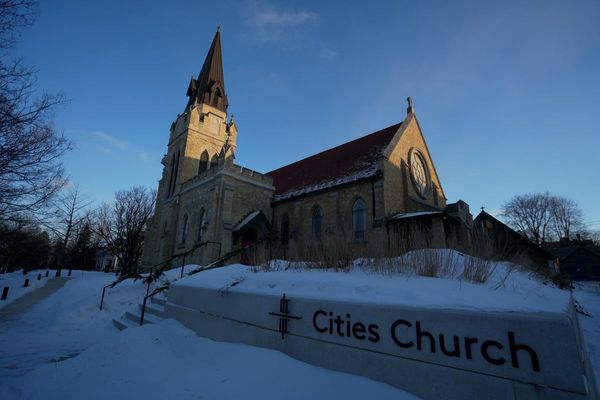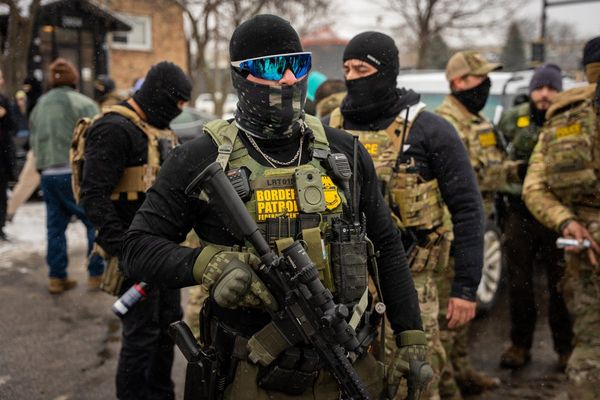ANNA Tkachenko learned English as a hobby in Ukraine, but has used the skill to work as an interpreter helping fellow refugees to navigate their new lives in Scotland.
The 39-year-old mum of three left her hometown on the outskirts of Kyiv after Russia invaded Ukraine in February 2022. Initially, they moved to a Western part of Ukraine to escape what Tkachenko describes as a “battlefield” before applying to the Homes for Ukraine scheme.
After their application to resettle in the UK was successful, Tkachenko, her husband, 40, and three children, aged eight, 10, and 12, drove across Europe, only finding out while they were on their way that they would be making Cardross their home.
After an extra day’s driving to the village on the outskirts of Dumbarton, Tkachenko and her family arrived on April 11 2022. They would spend two years living with their sponsor family, the McDonalds, who welcomed them with open arms while neighbours visited with gifts for their children.
“It was like a fairy tale for my kids,” Tkachenko said. “We didn’t want them to feel like refugees, that was my and my husband’s big effort for them to feel good.”
Tkachenko worked as a classroom assistant in a local school while her husband used his engineering experience to secure a role in Glasgow. But a few months later, tragedy would strike, and she would have to return to Ukraine.
In November, Tkachenko’s mother was found by paramedics in her home after having a stroke, after not responding to her family’s messages. She is believed to have been there for three days before being found, and was left paralysed.
Tkachenko drove from Cardross to Sumy, in north-eastern Ukraine, with a wheelchair and a walker to care for her, and brought her back to Scotland to recover a month later.
When she returned, Tkachenko took on work as an interpreter for Argyll and Bute Council, helping other Ukrainians to navigate life in Scotland.
“Because I know English, people approached me asking for help, and I was always open to help other people,” she explained.
“I found sponsors for a few Ukrainians, or I helped them with things like writing Facebook posts, and translating basically.”
Tkachenko would then become a founder of the Ukrainian Community in Argyll and Bute in spring 2024. She contacted the local council and other Ukrainian communities in Scotland, creating a constitution, organising meetings, and becoming secretary of the group.
After leaving the McDonald’s home, the family settled in Helensburgh, and Tkachenko undertook a leadership course through the Scottish Refugee Council.
“We just wanted to help, like people had in bigger cities like Glasgow and Edinburgh,” she said.

Argyll and Bute is the second largest local authority area, covering 690,946 hectares. It encompasses parts of Dunbartonshire, and island communities including Mull, Islay, Jura and Bute.
This meant the Ukrainian community is spread across a vast area, but Tkachenko made it her mission to bring them together.
This year on August 22, they celebrated Ukraine’s independence day on Bute, which houses a small number of Ukrainian refugees.
“That was like a gesture of gratitude,” Tkachenko explained, on the decision to hold the celebration on the Isle of Bute.
“Because we just understood how remote Bute is as a local community, and we just want something interesting for them, and the Ukrainian community.
“Our kind of purpose was not only integration, it was showing our culture, showing this gratitude, to just speak about Ukraine, and I think we managed to do that.”
Tkachenko said that they managed to bring Ukrainian refugees from Helensburgh, Dunoon, and Oban to the event, where they served Ukrainian food, sang songs, held dance workshops, and a raffle.
She arranged buses, funding, and dealt with paperwork to bring the event to life, a skill she has become adept at after moving to Scotland. “This is completely new work I’m doing here,” she adds. “I had never been an interpreter in Ukraine, English was just my hobby, and here we are.”
“I want Ukrainians to be together”, she adds, “to help each other in such difficult circumstances.”
“And I want people from Scotland to know [the] Ukrainian community is working hard.
“Everyone is doing their best to find jobs and pursue qualifications, it's amazing how people do that.
“I just try to help because I want people to hear about Ukraine. The war is still there, it still needs to be discussed, and there needs to be lasting peace.”
Tkachenko is clearly torn over what peace would mean for her family. Her children have become settled and integrated, choosing to speak in English. Returning to Ukraine would require uprooting their lives once again.
“It’s just breaking my heart that we don’t have that certainty,” she says.
“That's why I prefer to think about today's lives and just do something to give back.
“I was given such a big gift by [the] McDonald family. They opened their house, and I would never [be able to] give it back
“I can’t give it back to them, but I can do the same kindness for other people.”







